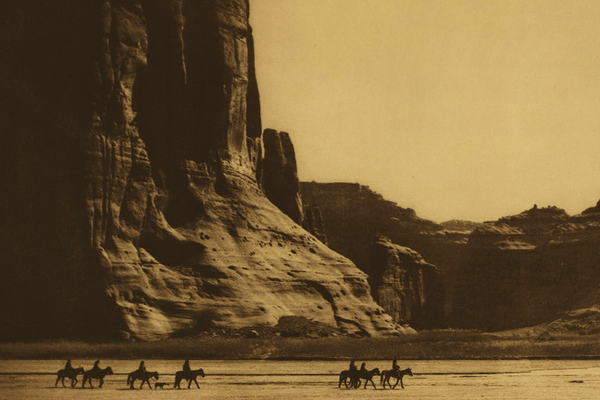COVID-19 is Devastating Native American Communities. History Illuminates Why.

For centuries, disparities have made disease outbreaks particularly devastating in Native American and other indigenous communities. The COVID-19 pandemic is no different.
Global, national, and even local crises reveal the fault lines in our social and political systems, and historically disadvantaged people inevitably bear the brunt of these crises. We are seeing this again with COVID-19: the homeless, the imprisoned, the elderly and disabled are especially vulnerable, as are black, Latinx, and Native American populations in the United States, Canada, and Latin America.
Preliminary studies show that historical racial inequalities have made people of color more susceptible than whites to complications from COVID-19. News reports from the Navajo Nation document extremely high rates of COVID-19. This is made even more life-threatening by the inadequate funding afforded the Indian Health Service and the impoverished situation of many tribal members.
Meanwhile, in news stories from the Brazilian Amazon we hear of loggers and miners finding opportunity in the political chaos of COVID-19 to ramp up their activities, killing indigenous people who get in their way.
In 1492 and for centuries afterwards, Europeans, Africans, Asians, and others introduced waves of novel diseases into the Americas, resulting in devastating serial epidemic disease episodes. Smallpox, measles, cholera and other foreign diseases did not kill indigenous people because of weak bodies and immune systems, as some have alleged. Rather, the losses of population due to disease were combined with increased warfare, the losses from commercial slaving and other forced labor systems of Native people, and other consequences of colonialism. All told, the Native American mortality rate topped 90% between 1500 and 1800 AD.
Native Americans continue to die in disproportionate numbers today because colonization also imposed specific structures of inequality designed to maintain-forced labor regimes, to remove indigenous people from their national lands, and to undermine their livelihoods. The efforts of colonizers to eliminate indigenous languages, sovereignty, and traditions have also caused further destruction to indigenous senses of community, kinship, spirituality, and health.
Centuries of unequal access to resources and decision-making served to weaken indigenous health across the Americas and beyond. In the United States alone, Native communities have not only unequal access to health care, but also increased rates of diabetes, heart disease, and respiratory ailments, all co- morbidity factors for COVID-19 mortality.
Increased government and public action is needed throughout the Americas not only to address the short-term issues related to COVID-19 but also the deeper structural issues we have raised. We call on all people to listen to the voices emanating from indigenous communities of the Americas and elsewhere and to support their demands. The Navajo Nation, for example, has called for the federal government COVID 19 relief package to be justly distributed to Native American tribal health-care systems. Only by alleviating the structural damage done by 500 years of colonial rule can we fully combat the COVID-19 pandemic in indigenous communities and help create a more equitable future for all.
For more information or to find ways you can help, go to ethnohistory.org.